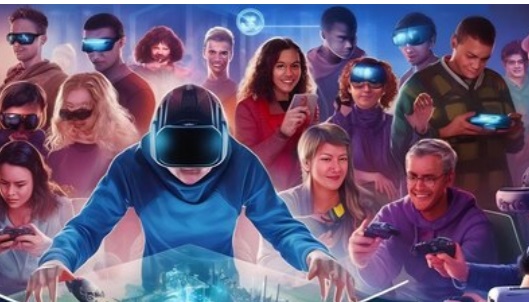Games are an inseparable part of the modern world of entertainment, considering their fast pace of development and the ability to keep the audience’s attention. As technology progresses, it has become possible for games to represent and achieve things that were at first thought unimaginable as the overall quality and interaction of games themselves enhance and progress. As a constantly evolving industry, it is partly art, partly writing, and partly technology, and the goal is to construct interesting worlds and interesting stories that can be enjoyed by people across the globe for many hours, years, or even decades, depending on the game. Spanning across various platforms, from simple mobile applications to professional console and PC games, video games somehow affect vast spheres of people’s lives, which makes them an important type of entertainment and communication medium.
The Role of Game Development in Engaging Digital Audiences

What is Game Development?
Game development is the process of designing and building video games to be played on stationary devices like game consoles, portable devices like mobile phones and tablets, and computers as well. It ranges from the generation of the game idea to the coding, creation, and evaluation of games before hitting the market.
The Evolution of Game Development
Many types of games have been developed and can be classified by simply the way they are played even today, the industry is growing and developing new and better games. Now, the good thing about advanced technologies is that, it has provided game developers with a set of tools and graphic engines, the creativity of which is limitless.
The enhancements in in-game abilities given to individuals have altered digital viewers significantly. Games are no longer confined to something that players play anymore, but it has become part of the culture and activity that people do to spend their time and have fun whiles at it.
Engaging Storytelling
The role of narration is one aspect of game development that has proven vital in the attempt to reach out to and captivate the electronic generation of the gaming audience. Like never before, games have highly detailed characters and plots in addition to creative game worlds. Hence, players feel emotions that are difficult to explain and get attention with the story of games, which is unique to games compared to other media such as movies or books.
Interactive and Immersive Experiences
As for the problem-solving aspect of games, well, games also allow players to have the sort of involvement one has when reading. As opposed to movie series or television, where the viewer only observes passively, gaming makes the viewer an active character who can influence the events of the story. This level of involvement, I think, enhances the relationship between the player and the game.
Constantly Evolving Content
The audiences get served with an immense amount of content to consume in the modern world of technology and advanced media. In an endeavor to meet the demands of its audiences that are well-informed of the various avatars, game developers are always enhancing and expanding on the games. It not only maintains active players’ participation but also makes people feel like they are part of a social group that is involved in the discussion of the events that occur regularly.
Social Interaction and Connectivity
Yet another crucial aspect of engaging consumers with games is promoting the element of social interaction and connection. Interaction possibilities through multiplayer games, online communities, and social platforms are developed within games providing an opportunity to build a community of players and friends. Unfortunately, the social aspect of games does not only serve as a means to make games more enjoyable but also as a way to incorporate collaboration and competition aspects as well. Moreover, in-game chat, forums, and live streaming allow players to discuss strategies and form coalitions and friendships to make the game generally more entertaining and gratifying.
The Future of Game Development
There are a variety of different possibilities as technology progresses, and so does game development. Another advantage concerning today’s virtual environment is that game developers have more resources when it comes to building a game world that exists in the same reality as gamers. It is the era of change in favor of developers of the games and users of the digital world.
Conclusion
Game development is a critical area of programming that helps deliver targeted audiences and has evolved significantly over time. The storytelling, capability to build fully absorbing environments that can constantly change, and adapt all this pure talent has placed game development unquestionably high as a method of entertainment/engaging people in the digital sphere. It is just perplexing as to what the future has in store for this continuously advancing commercial field. So it is not wrong to conclude that game development is going to play a pivotal part in influencing and entertaining the digitally glued audience for years to come.




